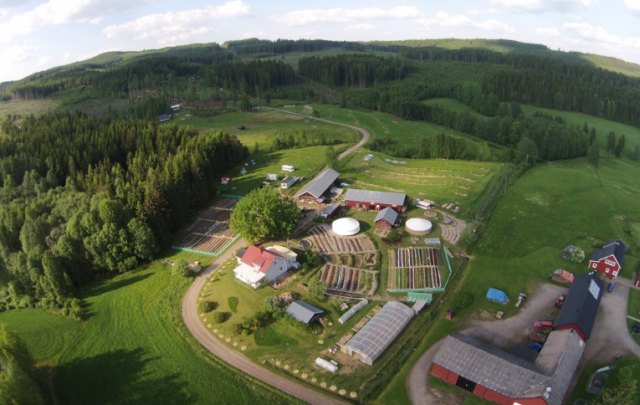Click on the headline (link) for the full text.
Many more articles are available through the Energy Bulletin homepage
Paul Ehrlich webcast: Has the “Population Bomb” finally exploded?
Wilson Center
Population, Environment Expert Launches New Book at Wilson Center
WASHINGTON—Forty years after his seminal book The Population Bomb, Paul Ehrlich is again stirring debate over the connections between population growth and environmental degradation. His latest book, The Dominant Animal, coauthored by Anne Ehrlich, traces the interplay between environmental change and evolution.
Human beings have developed vibrant cultures and vast scientific knowledge, but at the same time, they have cleared forests, changed Earth’s climate, and perhaps undermined their own supremacy. “In many ways, the situation is far worse today than I could have imagined when I wrote The Population Bomb,” says Ehrlich. “We, as the dominant animal, have so altered the environment and so damaged our life-support systems, that the stresses on the living world are similar to those produced by a meteor strike.” The Dominant Animal argues that the key to adapting to our new reality may be learning from our evolutionary past.
Paul Ehrlich, Bing Professor of Population Studies at Stanford University, is an expert on evolution, ecology, and human biology. Ehrlich has written more than 900 scientific papers and popular articles and more than 40 books, including The Population Bomb, The Process of Evolution, The Science of Ecology, and Human Natures.
On September 18 at 3:00 p.m., ECSP will sponsor the launch of The Dominant Animal at the Woodrow Wilson Center; copies will be available for purchase. A reception will follow at 4:30 p.m.
The event will be webcast live at www.wilsoncenter.org.
(14 September 2008)
More details at original.
Waiting for the Whirlwind
Adam Greenfield, WorldChanging
Worldchanging is about solutions. We don’t generally even write about problem-focused resources, unless, as our manifesto puts it, “the resource is so insightful that its very existence is a step towards a solution.” This essay by Adam Greenfield fits the bill: it speaks, with an almost fevered clarity, about the American relationship to the future, at a moment when America’s role in crafting the future may well be the planet’s most important uncertainty. Read it. And for more of his work, check out his book Everyware — Alex [WorldChanging editor]
… 3. On 15 August 1945, Japanese Emperor Hirohito redefined “understatement” for all time when, in his broadcast to the nation accepting the terms of unconditional surrender, he famously described the “war situation” as “ha[ving] developed not necessarily to Japan’s advantage.”
That’s the phrase that leapt to mind when I thought about Palin and about what significance she might hold as a symbol of larger forces in the culture. But this time it’s not anything as concrete as a “war situation,” a disposition of forces and potentials around a theater of conflict. It’s the entire future that’s shaping up as hostile. Or at least I can easily imagine it seeming this way, if the equity you’ve fought to build up in your house is circling the toilet, if your medical bills are spiraling out of control, if the media culture seems purely inimical to all attempts to raise your children with any set of values you’d recognize as sane, if you’ve still got to face the question of what to do for (and with) your parents as they age.
Sure, I bet it feels like the future’s one long hard slap in the face when all it means is city-killing storms and literally crumbling infrastructure and the (nonexistent, but easily enough ginned-up) specter of know-it-alls like Al Gore showing for interviews with an ITYS smirk. There’s not a whole hell of a lot your Crackberry can do about any of that – in fact, all the high-tech trinkets only make it worse, more acutely felt and harder to get away from.
Maybe it has something to do with just having given a talk about the future of ubiquitously networked cities in a place – South Korea – that’s embraced this vision more passionately than anywhere else on Earth. I’m totally willing to cop to the idea that this recognition was catalyzed, and maybe something a little more than catalyzed, by the fact of my being in Seoul. As I’ve written previously, ordinary Koreans – the ajumas and the schoolkids and the salaried workers, from Suwon to Sinhyeon – are surprisingly invested in neo-Weiserian visions of the high-technological future, because they perceive it as working for them.
Mainstream Americans, by contrast, where they were once called to dream and to believe that their best days as a community still lay ahead, are now at war with the future. And this is one war situation that is definitely not developing necessarily to their advantage.
(13 September 2008)
One green baby
Vicky Allan, Sunday Herald (Scotland)
Limiting your quota of offspring to one is the latest way to reduce your carbon footprint. But will it really help save the planet?
—
THERE ARE many things Corrie Cuthbertson does because she believes they are good for the environment. She makes her own cleaning products. She grows her own vegetables. She has not flown for the past two years and, this month, her holiday involves taking the train all the way to the south of France. Last year she drove her car a mere 10 times. She has been known to take packaging back to the supermarket. But the biggest thing she does is to abstain from having children.
At 34 years old, Cuthbertson is “99.9% certain” she will never procreate. This isn’t because she can’t, or because she and her husband don’t want children, or because she loves her career too much, but because she believes that bringing another life into the world is the most damaging thing she can do in terms of climate change and sustainability. Another child equals another carbon footprint: another unwelcome addition to the 6.7 billion of us carbon-guzzlers already threatening to drain the world’s resources. That is her view.
Cuthbertson believes this is an issue that is being strangely overlooked by many environmentalists. Though she has many friends in the movement, she knows of no-one like herself who has made the decision to go childfree for the sake of the planet.
(14 September 2008)





